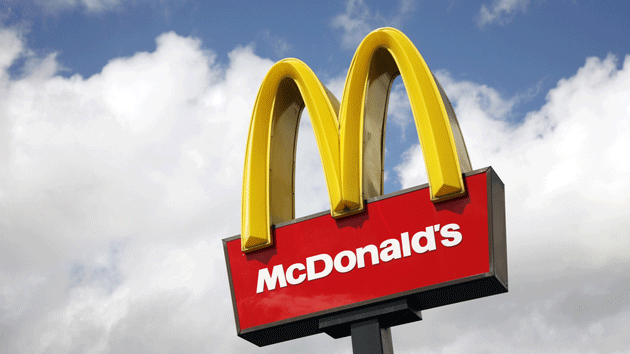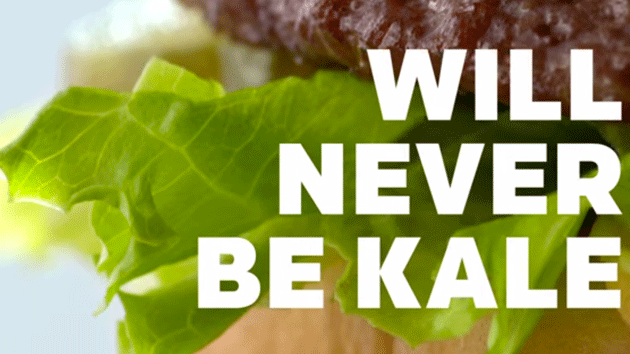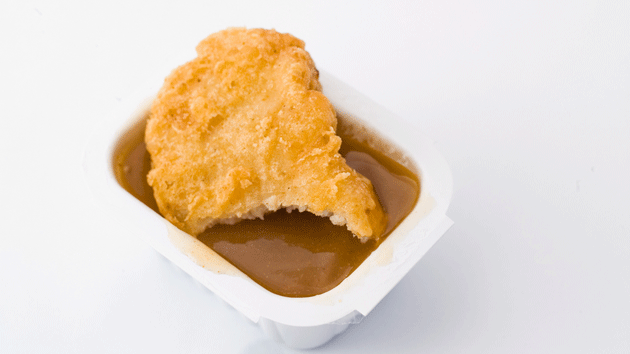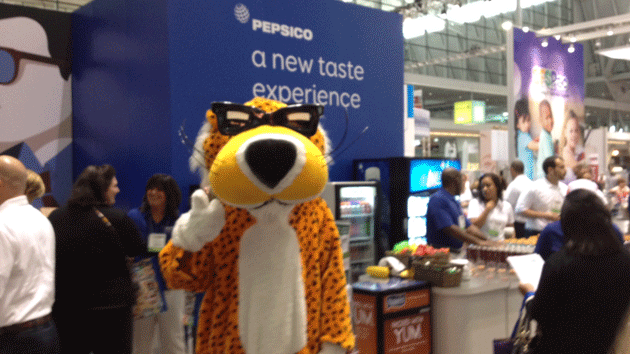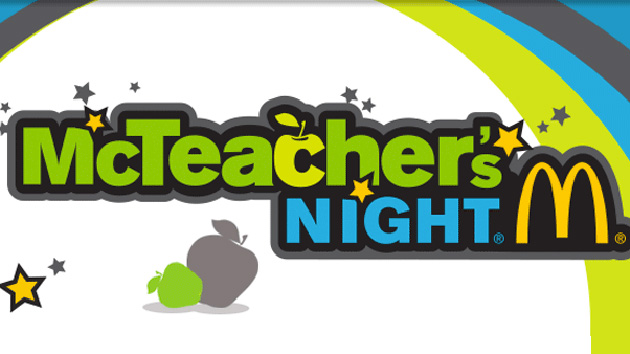
Image courtesy of <a href="http://www.mcstate.com/12308/32516/McTeachers-Night/" target="_blank">McDonald's</a>
Fast-food companies take a lot of flack for marketing to children with toys, ads, and special meals. But the kid-courting isn’t limited to restaurants. School Nutrition Association spokeswoman Diane Pratt-Heavner told me that almost a quarter of schools sell branded fast-food products in their cafeterias. It’s also common for chains to partner with local schools on branded educational events and fundraisers. Take McDonald’s, which has mastered the art of the out-of-restaurant kids’ programs. A sampling of the Golden Arches’ clever offerings:
1. Teachers selling food: Through a program called McTeacher’s Night (also known as McStaff Night), school staff work at their local McDonald’s for a few hours, and a portion of the sales made during the shift go to support their school. These events typically draw a crowd—as one North Carolina McTeacher’s Night website explains, students and their families get a real kick out of hearing “their favorite teachers say ‘Do you want fries with that?'”
McDonald’s headquarters told me that it’s up to the individual restaurants to decide how much money the school takes home. According to this news story from the Morrow County Sentinel, during a recent McStaff Night in Cardington, Ohio, teachers from the Cardington-Lincoln Junior High School “conducted promotional type activities by greeting diners, offering samples, etc.” The grand total the school earned: $191. Profits for McDonald’s: $1,273. (H/T Andy Bellatti and Campaign for a Commercial Free Childhood.)
2. Teaching teens work skills (and having them work for free): A week-long summer program called Camp Mickey D’s helps teens at 38 high schools in San Antonio, Texas, “come to grips with the demands of the workplace.” The camp, which is free for teens, takes place at McDonald’s restaurants, where students participate in leadership activities, work the registers, serve food, and make their own lunches.
3. Ronald McDonald gym class: A program called Go Active With Ronald McDonald brings to schools a live-action show about the importance of exercise, starring Ronald himself. The 40-minute performance, which is free for elementary schools, teaches kids that physical activity is just as important for their health as food: “It’s what I eat AND what I do…and what I do is Go Active!” (The Lunch Tray blog has the full scoop on how McDonald’s claimed it didn’t market in schools—then backtracked.)
4. Moms spreading the word: McDonald’s recruits groups of American mothers to become Moms’ Quality Correspondents. The women attend a program about McDonald’s food safety, quality, and nutrition and then share their experiences with other moms. In 2008, the program won an award from the Public Relations Society of America. The society praised the program as a clever advertising strategy: The moms “shared experiences in their own words, using word-of-mouth to build trust with other moms, and spread the McDonald’s food quality story,” a press release said.
In a testimonial on the McDonald’s website, Mom’ Quality Correspondent Tonia Welling shares her takeaway from the program: that it’s a customer’s responsibility to order as healthily as possible. “I have to take the time and be as concerned about looking at the ingredients or nutritional information at restaurants as I am when I go shopping at the supermarket,” she writes. “We don’t always see [nutritional information], even though it is there, right in front of us.” McDonald’s has also courted mom bloggers, the company told the New York Times in 2012.

5. Free breakfasts and coupon books for students: Many McDonald’s locations offer free breakfast to students on the first day of school and standardized testing days. Some locations also run fundraisers (like this one) where schools sell McDonald’s coupon books to students and their families. A portion of the proceeds go to support the school.
Over at Civil Eats, school food blogger Bettina Elias Siegel explained in December that McDonald’s targeting of kids is no accident. Rather, it’s part of the company’s strategy to revive its flagging sales. In a December conference call, Siegel reported, McDonald’s then-CEO Don Thompson and the company’s US President Mike Andres told investors that the company has “got to be in the schools. When you look at the performance relative to peers of the operators [whose] restaurants are part of the community–it’s significant.”

